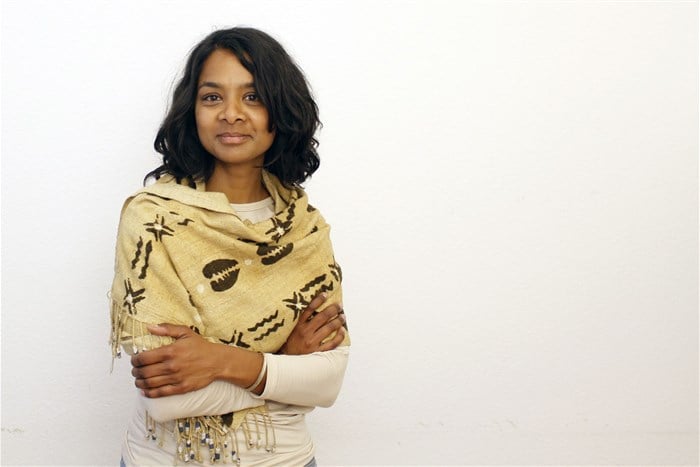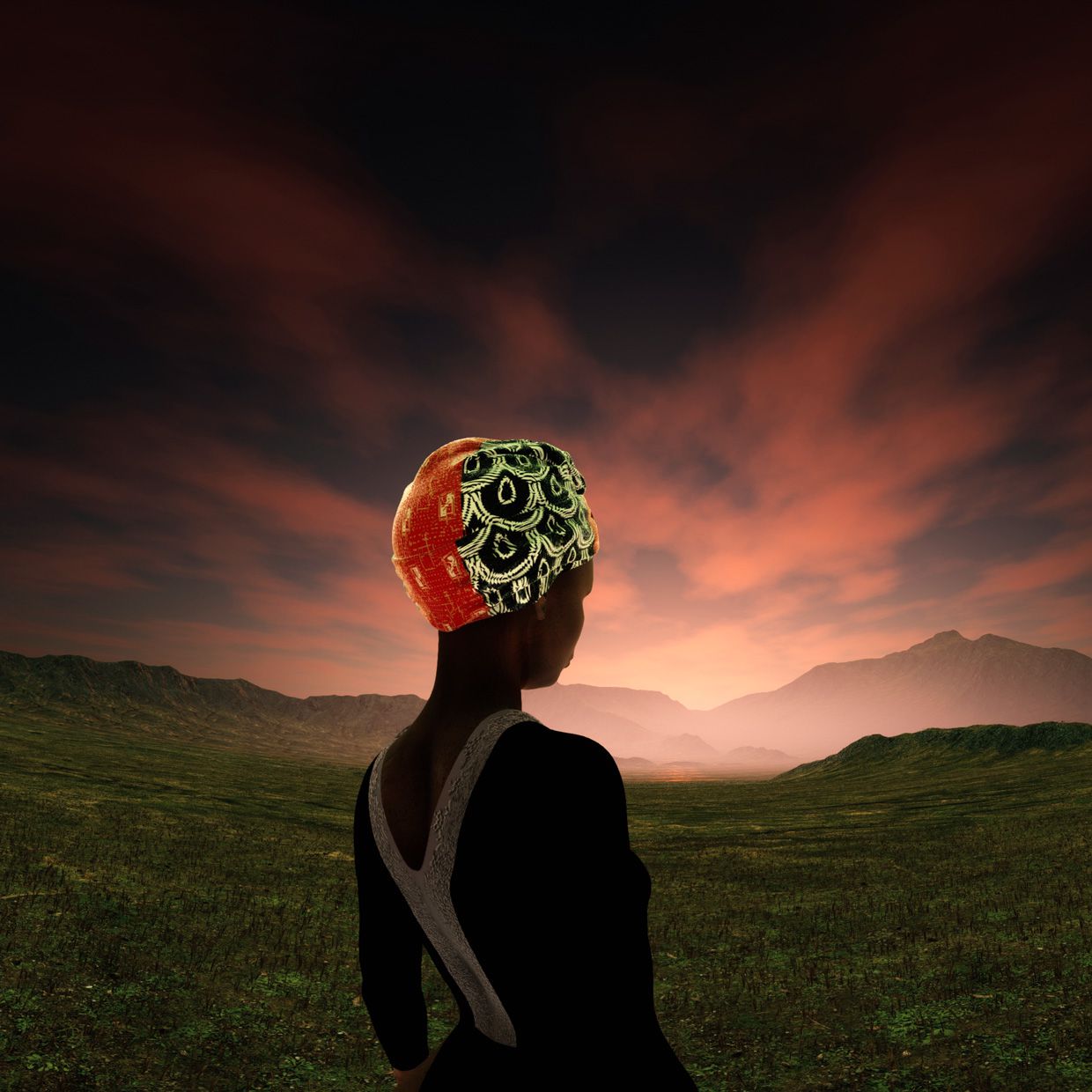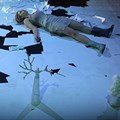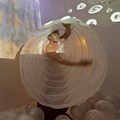Marketing & Media trends
Industry trends
BizTrends Sponsors
Trending




 Does anyone know what content is any more?Justine Drake
Does anyone know what content is any more?Justine Drake
#BizTrends2021: 7 prospects and necessary shifts for the arts
All disciplines in the arts are undergoing big transformations.
We can anticipate continued shifts into new directions this year. They may not feel resolved or final, but they will be necessary shifts at this point, to rebuild a new landscape for the arts and audiences alike.Looking at the world around us, green shoots are starting to show in multiple areas but there are big structural and technical shifts happening and much to learn and absorb. Here are some of the trends that are likely to lead in 2021.

Sensory awakening
To experience something - we are back to the basics of that phrase. Our sensory experiences affirm our humanness and human connection. During the isolation of lockdown, we have either missed this or experienced discomforting or discombobulating online versions of this, carrying on ‘as normal’ on online platforms like Zoom often without acknowledging the disjuncture of needing human closeness and feeling alone.
Think about each sense and how it can be experienced in different home or digital conditions or inside socially distanced gatherings. Audio penetrates spaces, weaving into different rooms of a house, smell jolts memories and associations; touch locates your body in space and relation to things. The visual is now the most contested sense in the fight for attention. For artists, it will be pertinent to ask how to transmit an experience, a feeling, a sentiment through our senses or calling on numerous senses to receive it.
Care
‘Care’ is a very important word for 2021 and a concept we will see increasingly unpacked. This is beyond sanitising, temperature checking and social distancing - which, of course, all still need to be done.
This is about the ethics and politics of care and how we bring ‘caring for each other’ into our everyday, our business practices, our social structures and our natural world.We are seeing this in the imbalances of healthcare quality and availability, Black Lives Matter, outcries over police brutality from South Africa to the US to Nigeria. 2020 was unpredictable and unforgiving and has left art makers, arts lovers and audiences jaded, wary and worn out. Arts institutions and companies should be preemptive here, considering the experience of artists and audiences – are people acknowledged? Is there empathy? Do they feel cared for? How am I a caregiver?
Kinship
Experiencing kinship; the compelling bond of community, tribe or chosen family, is feeling a sense of belonging, recognising and feeling recognised. Our new found global digital connectivity has opened us up to a multitude of possibilities, from shopping for shoes made in Barcelona to virtual museum visits in New York to online festivals produced out of Makhanda. With so much possibility, there is little which necessitates compromising for something we are half interested in. And from far corners of the connected world, we can find others with the same precise interest, persuasion or cause. Understanding this means understanding audiences as bespoke and nuanced.
Precise content or experience curation is needed for a more selective and particular audience. Communications approaches similarly can be precise and targeted, even personalised.Think gifting, restricted access clubs or online communities, hyper-targeted newsletters or social media posts. Think exclusive content previews, precise curation and real connection.
Hybrid approaches
As uncomfortable as it is, a responsiveness to uncertainty, which is adaptable and sees one able to pivot, is still a feature for 2021. We should see the arts working across live and online. Images of a sci-fi plot where the spaceship crew works across parallel universes simultaneously comes to mind. Those who have started doing it realise it can be exhausting for a team and consideration to volume of output vs careful curation will need to be made.
But the pace of technological advancements has accelerated and if one can allocate budget to increasing the quality of online presentations that is likely a good investment. Consider making use of live broadcasting technologies like multi-camera shooting, live cut-away and pre-recorded inserts for online streaming. Bringing these approaches into live performance settings thus caters for both live and online audiences, contributes to a more sophisticated experience for online audiences and allows you to plan for and produce for both environments (IRL ‘in real life’ and online) simultaneously.
If budgets are limited, find other ways to create a multi-perspective stream for online audiences, for example, real-time blogging, physical avatars or multi-sensory experience. All this contributes to making the virtual or online environment more engaging and compelling, making the person participating feel more present.

Time is not what it seems
Time is shorter. Time is more loaded. For online or screen work certainly, time works differently. Think about what devices people may use to experience online work – i.e. – using smartphones or tablets. Understand that you are fighting for people’s attention. At home, online audiences are juggling working from home, family and work responsibilities.
Escapism is possibly more greatly needed, however, there is less time for it and less distinction between work, home and leisure spaces.There is less patience for expending time on ‘long’ registration processes or multiple process ticket purchasing. Consider passes and subscriptions rather than individual tickets, calendar integrated bookings, reminders and time zone converters. Consider several shorter digital experiences over one long one. For example, booklets over a book, episodes over one long podcast. Not that longer doesn’t work or that long form is not possible, but it is special, or exceptional, so treat it like that. Have supporting work or a strategy to build up interest from the audience to allow them to arrive at the point of committing; carving out the time and attention for longer form work.
When you are asking the audience to invest more focused time for longer form work, consider scheduling a programme more along the lines of building ritual. Would the audience attend, view or participate during dinner or after putting children to bed? Imagine and design the experience even integrating it into intimate spaces and home rituals, but whether online or IRL, the key is regularity or predictability so that the audience can incorporate programme aspects into their lives, and build ritual around them.
Curation over curator
Doors are opening, or maybe they are falling apart, or maybe the gatekeeper has fled altogether? Whatever the appropriate analogy, there is a gap and it’s open for anyone’s taking. Overall it is time to welcome a broader participation in content creation and presentation.
It is no longer companies, galleries, theatres or festivals alone that hold responsibility for producing and presenting work. Artists have been experimenting with modes of production and presentation using digital technologies available on smartphones, non-artists too, from podcasts to blogs, live streams to image galleries. And though I think audiences may maintain skepticism, equally there is an acclimatisation to and curiosity about the idea of new formats and approaches to production and presentation of work.
So in the swathe of content from varying producers, artists and venues across varied platforms, curation gains ground. Curation is a means to make sense of, it is the offering of a path to perceive or understand. Bearing in mind that we all curate to some extent these days, from our social media pages to car playlists or Netflix wish lists, curation itself is a transforming field, and so here we should be playful. For bigger institutions, theatre or venues, staying in the game means opening the doors to diverse perspectives and curatorial approaches.
Learning to learn again
The presence of technology in 2021 is an obvious point. But rather than speak about specific technologies (there are those better able to do that) the trend here is learning to learn again. Constant learning is a new norm. Technology has entered artistic practice and presentation and those working in the sector have had to learn new technologies and strategies, those who haven’t yet, get started! We are now in the mode of ongoing change, and so ongoing learning is necessary. Consider making time for team members or staff to invest in their ongoing learning. Data and information can be overwhelming, but we have to find ways to get to grips with this new onslaught and make it work for our companies and programmes. Much learning can be done for free; downloading software and playing with it, reading up online. But focused or collective learning helps us to process and grow together as well as build the ongoing routine of learning.
As we prepare for our own hybrid National Arts Festival in 2021, much remains uncertain, but we are navigating this path through a combination of agile creativity and collaboration. Staying close to our audiences and artists in a way that we haven’t before, we are learning that there are so many possibilities for the arts to reach out to people in ways it hasn’t before, at a time when connection and creativity is most needed.





